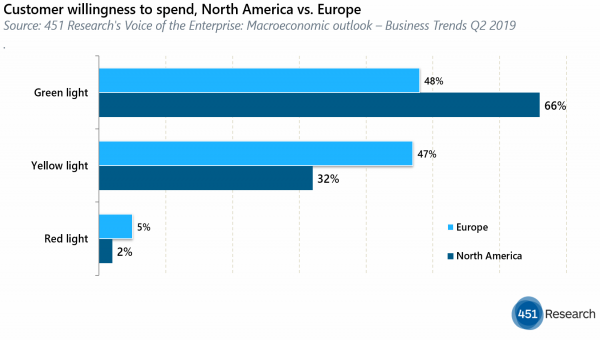by Brenon Daly
The synchronized growth that characterized the world’s economy in recent years has broken down. Individual protectionism has replaced broad cooperation. The fallout from this shift to self-serving economic and political policies, however, is being unevenly distributed around the globe, with weak countries suffering even more.
Consider the EU, a semi-unified body that has half again as many people as the US (512 million vs. 325 million) but generates less overall economic activity than the US. With its fractious membership and ever-increasing separatist sentiment, the EU finds itself fraying more right now than at any point in its half-century history. Raucous political discord complicates the EU’s efforts toward economic expansion.
The International Monetary Fund has noticed that, recently lowering its forecast for economic expansion in the EU to a mere 1.3% in 2019, just half the comparable rate of the US. As alarming as that outlook is, it is still a ‘tops down’ view from a group of technocrats. A far more informed view comes from the actual participants in the economy, the people whose livelihood depends on successfully reading and adapting to real-world business conditions.
And the view from them, as captured in a just-published Voice of the Enterprise (VotE) survey, is fairly dour. Customers in Europe aren’t spending nearly as freely as they are elsewhere. Our latest quarterly VotE survey looked at various spending plans and macroeconomic concerns from some 1,100 respondents, most based in North America.
As you might expect, almost all of them (90%) said the company they work for does business in their home region of North America. Europe emerged as the second-most-popular region, with more than four in 10 (43%) indicating their company currently rings up sales there.
However, when it came to assessing the current business climate in the various regions, respondents to our VotE survey ranked Europe in last place. Just slightly less than half of the respondents (48%) said their customers on the Continent had a ‘green light’ to spend on new products and services. That is almost 20 percentage points lower than North America, where two-thirds (66%) said their clients have a ‘green light’ to buy.

